Columbia College | Columbia University in the City of New York
“What’s Something of Meaning You’ve Rediscovered at Home?”
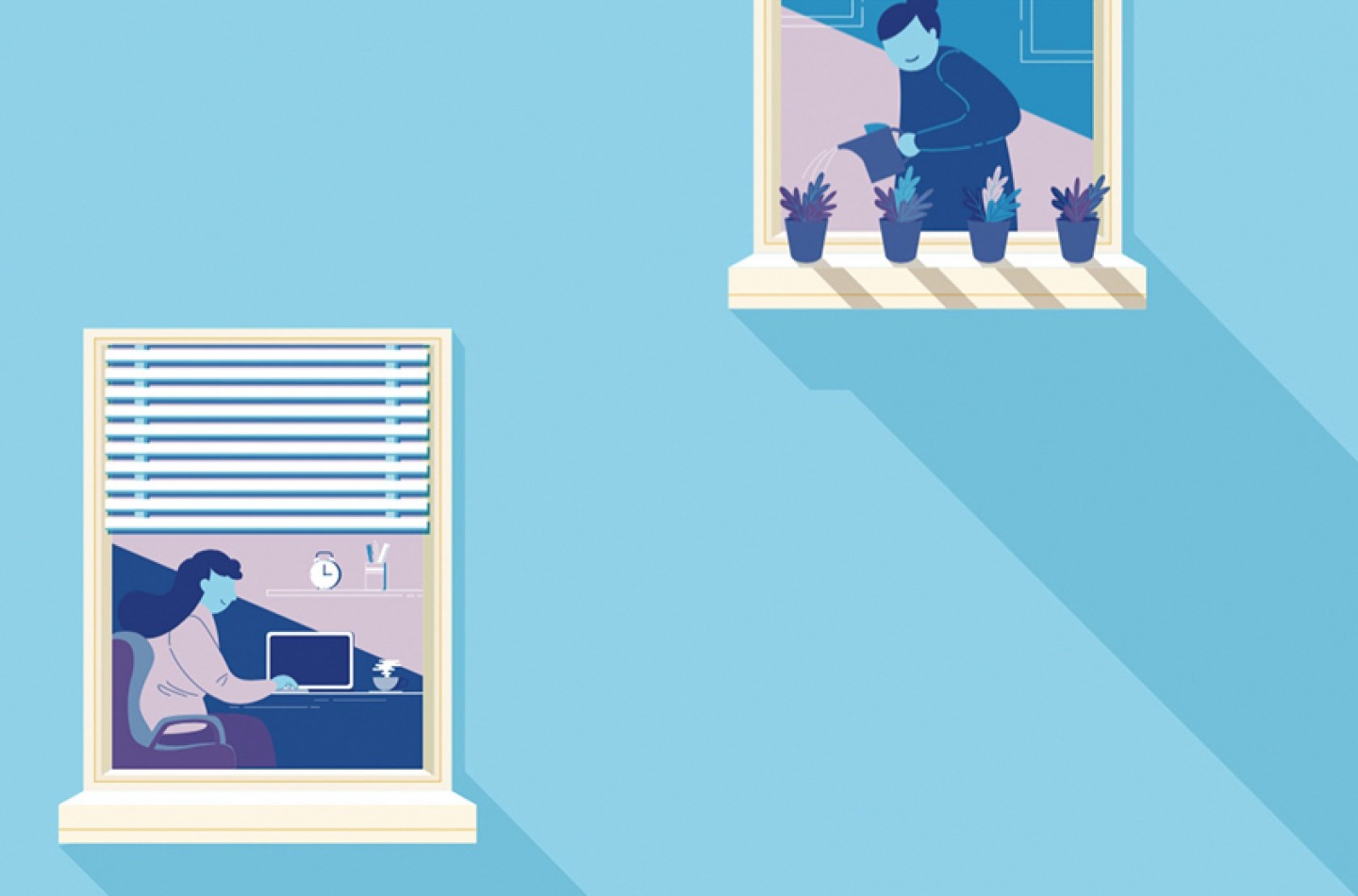
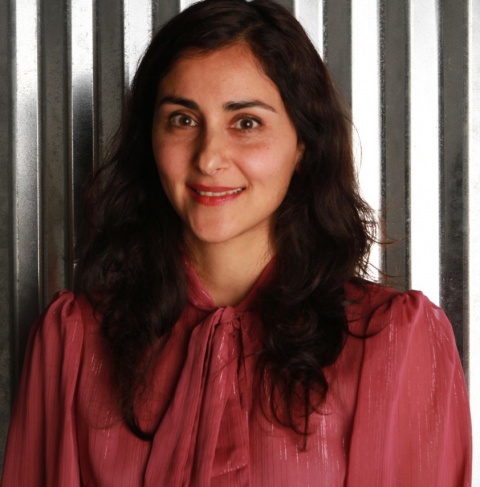
Negar Ahkami ’92
Artist-in-residence at Arlington Arts Center
“O
ne of my 2018 resolutions was to no longer cook ghormeh sabzi, a classic Iranian stew. At the time, I was really struggling with balancing my artist life with my kids’ increasingly complicated schedules. If sheet-pan dinners were gaining popularity, why was I bothering with time-consuming stews? But when I mentioned this to Iranian relatives, I felt judgment and pity in the awkward silence.
“Right now, however, the fragrant subtlety of ghormeh sabzi feels medicinal and grounding, tasting of springtime. That something so sophisticated and nourishing can be made from humble herbs amazes me. I have made the stew six times in two months, enhanced by farmers’ market additions like ramps or lovage. Each meal felt special — with the reduction of frenetic schedules and outside-world clutter, the countertop sprawl of drying herbs feels less annoying.
“Working exclusively from home now, with no after-school activities, my artist and family lives are integrated, not at war. Preparing the herbs distracts me from anxious thoughts and helps me think about my work. My back-and-forth between herbs and studio reminds me to be patient. My art, like a Persian stew, need not happen so quickly. It involves time-consuming steps that seem unremarkable in their parts, but culminate in something complex, elevated, connected to something larger.”
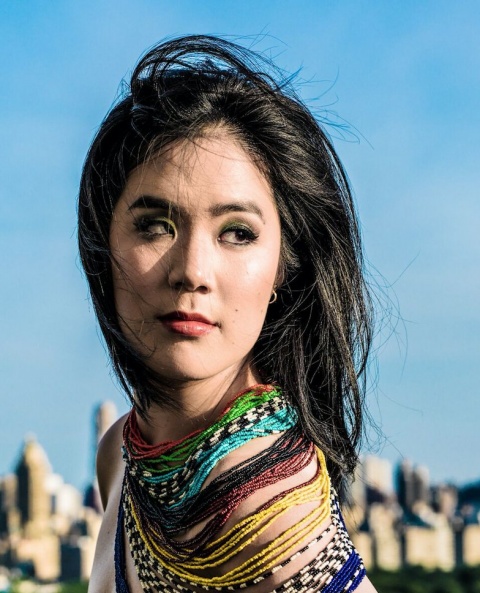
Photo by Emra Islek
Stephanie Chou ’09
Composer, singer and saxophonist
“A
side from the typical rediscoveries many other NYC apartment-dwellers have made — how to use the stove, what’s in the back of the closet, how loud the neighbors are — one thing of meaning I’ve rediscovered in my home has been my composing ‘workstation.’

“I’ve also rediscovered the floor. Literally. Without access to traditional Pilates equipment, I’ve modified my entire Pilates and gyrokinesis routine to be a mat-based workout; doing mat-only work for three months has allowed me to discover what areas I can do well on my own versus what areas need equipment assistance. Mat exercises are generally harder than equipment-based ones. I feel like I’m rediscovering my body, learning more about it and how to do deeper, more effective internal work, in this new state.
“Alternating between composing at my computer and doing mat exercises, in the same room and the same space, has led to meaningful discoveries during the pandemic, allowing me to slow down and focus on what’s important.”

Scott FitzSimons Smith ’86
Retired Air Force major general
“I
sit here in a small corporate apartment and ponder what I’ve ‘rediscovered.’ I retired from the Air Force in October and took a job in San Diego. My wife and three daughters would have joined at the end of the school year with some house/school-hunting visits in-between.
“All that changed, and I find myself essentially on a military deployment. The irony is thick — 32 years of family separation and missed events were over, or so I thought. So today I reflect on the deprivation of my senses comingling with a heightening of awareness.
“While my wife multi-tasks as head of household and teacher/online schooling guru (times three), I live a life of endless WebExs and telecon meetings. She is immersed in the cacophony of three energetic girls, and I in a silence broken only by the air conditioner or a passing car. My wife is a wonderful cook, and the Virginia house abounds with aromas of delightful cuisine. Here, the smells are those wafting off a microwaved frozen dinner. Before her eyes and in her arms each day are our growing girls; for me, there is just me.
“Sounds, smells, sights and touch … I’m more keenly aware of how important they are to me, and how I unwittingly took them for granted. No audio-video communication device can supplant real life.
“But there are new joys these days, too. Twelve fellow Columbians gather on Zoom for cocktail parties, and each day I experience freedom’s excitement when emerging from my apartment and going on a run. I’d drifted a bit from pleasure reading but now am plowing through books again, and I’ve rekindled several friendships that had waned.
“COVID lockdown will end, and though challenging, it delivered to me wonderful clarity. I hope to you as well.”

Princess Francois ’11
Assistant principal
“W
orking from home has become the new normal in this pandemic. My bedroom is both my classroom and teacher’s lounge, and my bed is my desk. Being home 24/7 has allowed me to rediscover meaning in something that has been there since I began renting my apartment seven years ago and literally continues to grow with time. Any guesses?
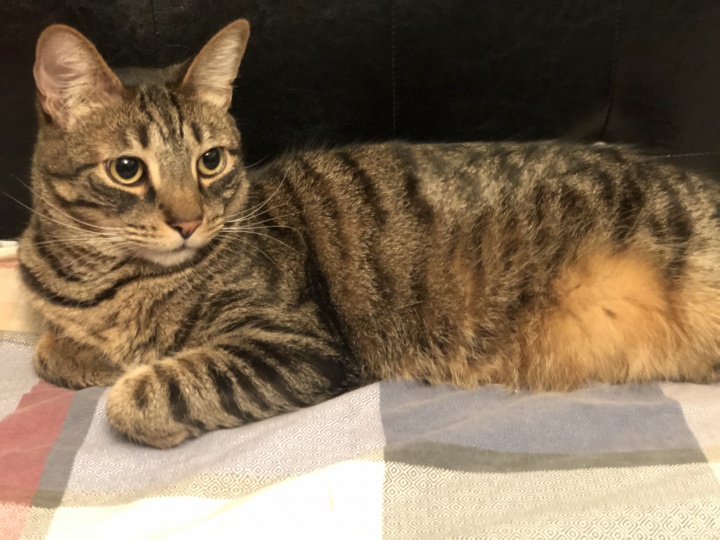
“At the start of quarantine, our routines collided. My cat was confused why I was home all day, every day. Cats love their space, Cairo especially! He started this quarantine trying to claim the space he always had sole access to when I was at work: my bed. Now that he was seeing me work from there, he was not having it. His tactic: unapologetically crossing my lap and computer screen while I was in Zoom meetings with colleagues, then pacing back and forth until I gave him a face rub. In month three of lockdown, we learned how to compromise. He took his daily naps from the window; I signaled when I could give him quality time, and when I needed space.
“Cairo has become a source of comfort during this time with his endless love and cuteness overload. I will not take for granted that my furry friend has been a constant source of companionship in my life. He deserves all the hugs and face rubs in the world!”

Susan Harlan ’99
Writer and professor
“I
brought some river rocks back from Tennessee last summer. They’re from the Little River in the Great Smoky Mountains. I rent a cabin on the river, and I sit on the porch and watch the ducks fly down and come to rest on the water. My dog Millie sits next to me, and sometimes I read and sometimes I write. I have been going there for years, so I know people in the town and feel at home there.

“I stood in the river one afternoon and scooped up my rocks and put them in a Ziploc bag. They’re just gray rocks. When I got home, I put them in a jar and set them on my front porch. Now we don’t know when we’ll be able to travel again, so I just have my rocks; I don’t have my river. But they remind me how transporting souvenirs can be.”
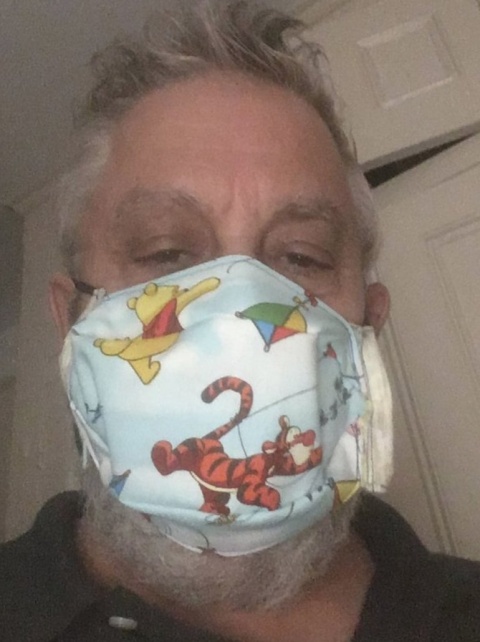
Consultant and bookkeeper
“M
y late wife, Karen Kelly, left behind her sewing machine from the 1970s: a Singer Stylist 833. The instruction manual was indecipherable, despite my reaching onto the bookshelf for some works from Contemporary Civilization and/or Literature Humanities to help with how to route the thread or wind the bobbin. That Singer Stylist was not covered in any of those works by Aristotle or Plato, and Singer was not on the reading list when I took the Core. As a result, I was worried that I was going to end up living my version of a Greek tragedy. (‘Widower dies from puncture wounds from his late wife’s Singer Stylist 833, title: Death by Stylist 833.’)
“I am not sure what my next socially isolated adventure or learning experience will be, but I have the masks to certainly make a superhero adventure!”
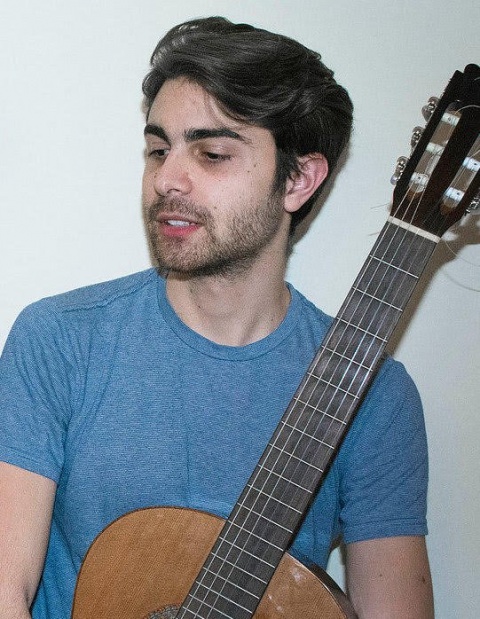
Daniel Lazour ’16
Composer and playwright
“L
et me tell you about the Magical Light (ML-2) Casio Keyboard I found while staying in my childhood bedroom. It’s been bringing me such joy and peace during this time.”
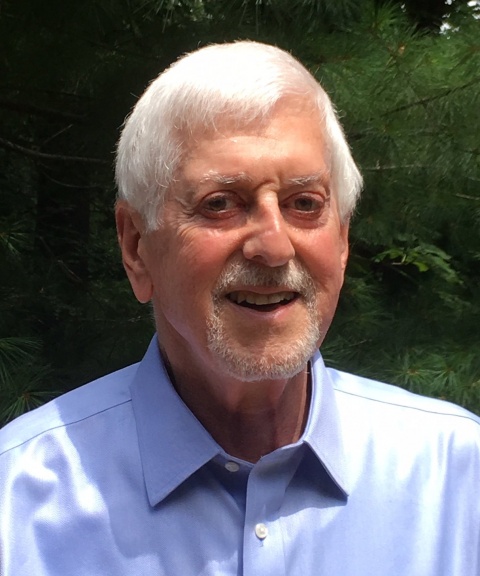
Photo by Sandra K. Pearlman
Eugene L. Meyer ’64
Journalist and author
“S
ince I have worked from home for some time before COVID-19, the question is, how is this different? The partial answer is the avenues of escape are limited: a walk through the neighborhood, the early morning ritual to retrieve the newspapers from the driveway, the weekly wheeling of the recycling and trash cans to and from the curb.
“Inside, my wife is upstairs ‘working from home,’ while my office is on our lower level. On the window ledge are cherished family pictures, scenic photos and framed awards.
“In a way, this lockdown has broadened my interior life. What have I noticed? Too much stuff, undoubtedly. I’m donating my archives to various institutions, so I’m daily faced with what’s left. Maybe I’m noticing my books more, the ones I must ultimately dispose of, knowing that will be a painful process, and mulling over which ones will I keep. A wall of books next to our basement treadmill is unavoidably in my line of sight.
“I’m also face to face on the treadmill with a shelf of vinyl records I’ve long treasured (some since I was a Columbia undergraduate) but haven’t listened to in years. I’m thinking they will make the short list for downsizing.
“But my view is not entirely inward. From my windows, I see the poplar trees and azaleas in full bloom — the sad irony of natural beauty and renewal in the tragic time of coronavirus. Soon enough new leaves will replace the blooms, even as sheltering in place is replaced by who knows what. But here I am, for now, looking in, looking out.”

Photo by Jörg Meyer
Tom Meyers ’97
Podcaster, author and travel blogger
“A
n infant car seat. One Saturday in late April, my phone vibrated while I was eating lunch with my family. To my surprise, it wasn’t a notification about a grocery delivery or a FaceTime call from family. It was the adoption agency. I looked at my husband, and at our 3-year old, and sprang from the table.
“It was the news we’d long been hoping for, but certainly didn’t expect during a pandemic: We’d been placed with a 2-day-old baby girl. The social worker informed me that we’d need to drive to the agency the next morning to get our daughter and bring her home. ‘Don’t panic,’ she said. ‘You really only need a car seat. You can get everything else later.’
“Well, a car seat and masks.
“That afternoon and evening were absolutely wild as we tried to get the house ready for a newborn girl. What did we need? How would we get it? The car seat … we quickly located and installed our son’s old seat, then broke into a sweat when we realized it was missing its infant liner, long ago removed and stored in some seemingly easy-to-remember location.
“What happened next wasn’t pretty: Rooms were ransacked, dresser drawers flung open, closets hastily emptied of their contents. No liner. Meanwhile, the cold-sweated search was interrupted by phone calls from family and friends, all of whom responded the same way, ‘Finally! Some good news!’
“‘What about the linen closet?’ my husband asked, and we pounced. There, under long-forgotten bath towels and beach blankets, was a tiny, folded felt liner, the kind that fastens tightly inside the car seat, keeping the infant secure.
“The next morning, sandwiches were packed, masks were tucked away and my husband installed the car seat, our 3-year old watching curiously. We then carefully attached the infant liner. It looked so small, and so soft. We were finally ready to go.”
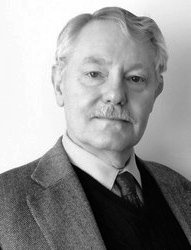
Photo by Rebecca and William Snow
Richard Snow ’70
Writer and former editor-in-chief
“W
hat I’ve discovered during these strange days is that my wife works much harder than I do. My role has been to keep out from underfoot, and fortunately there’s a room in our apartment where I can do that. Even before the plague it had somehow come to be called the study, although that suggests more intellectual energy than I’ve ever actually expended there. But it is quiet, and it looks out over Washington Square Park; the rare visitor passing beneath the boughs looks like one of those lonely figures stuck into a Renaissance architectural engraving to give it a sense of scale.
“My father knew all about such renderings, for he graduated not only from Columbia College, but also from the Architecture School. His uncle, William A. Boring, was the dean of the Architecture School, and he had encouraged his nephew.
“But even so sturdy an ally couldn’t help my dad much when he emerged as a full-fledged architect into the early 1930s, the bleakest moment his profession had seen since the dawn of the Republic. He struggled along for years (I remember him telling me how delighted he had been to get a commission redesigning a shoe store window), but then things began to look up. In 1938 Country Life magazine asked him to draft the plans for two nice places in which beneficiaries of the strengthening economy might relax: an ideal mountain house and an ideal beach house. Prominent painter and muralist Witold Gordon agreed to do renderings of the houses based on my father’s plans.
“Gordon’s paintings have hung in my study for years, and with those two imaginary homes hovering over me, I read in The Wall Street Journal a review of a new book by Alex Beam, Broken Glass, about the weekend retreat great architect Mies van der Rohe had designed in a Chicago suburb for a forceful, unconventional woman named Edith Farnsworth. What made me freeze with the newspaper in my hands was the picture of the house on the book jacket that opened the review. I actually spoke aloud to myself, just like an animated cartoon character does: ‘Hey! That’s my dad’s beach house.’
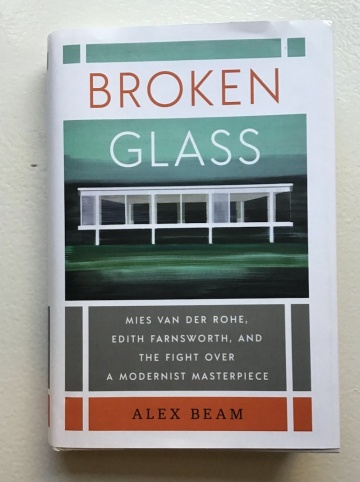
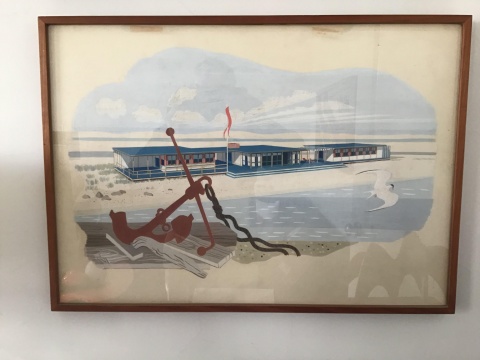
“Had I not been immured in my apartment, I might well have missed that book review and the illustration that came with it. But instead my fortuitous isolation has brought me, 20 years after my father’s death, into what feels like a lively conversation with him.”
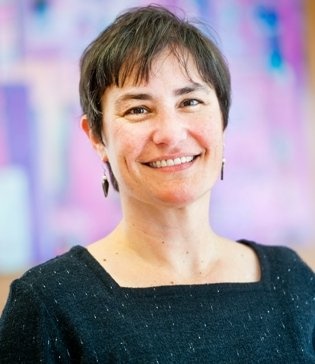
Rabbi Deborah Waxman ’89
President, Reconstructing Judaism
“M
y kitchen scale is both expanding my cooking capacities and helping me to set limits. Cooking grounds me. The capacity to feed people — to create vibrant flavors that make people smile, to fill stomachs even when hearts feel empty — has helped me to build community and has felt like a hedge against sadness and loss.
“When I called my wife in early March from my nearly nonstop travel to ask her to stock the downstairs freezer with frozen vegetables, she willingly agreed. When I got home, I filled both refrigerators with fresh vegetables, uncertain when I would be able to shop again.
“I shifted my travel to Zoom, strategizing with staff and congregational leaders about fostering community in this new landscape. I spent my free time in my kitchen using the scale as I cooked through the vast amounts of fresh food I had purchased so it wouldn’t go to waste, mourning the fact that we couldn’t invite friends over to share it. We focused much of our tzedakah (charity) to support anti-hunger organizations, and I struggled to avoid food waste.
“‘Teach us to measure our days,’ Psalm 90 beseeches. My food scale pushed me to measure more justly. I now cook from our pantry, buying less food and preparing it as quickly as I can. We continue to support anti-hunger efforts and, more recently, upped our donations to racial justice organizations. I have doubled down on my daily gratitude practice so that I can more fully weigh the privilege I experience. Going forward, I commit to building community in ways that minimize waste and increase the justice and abundance for everyone.”

